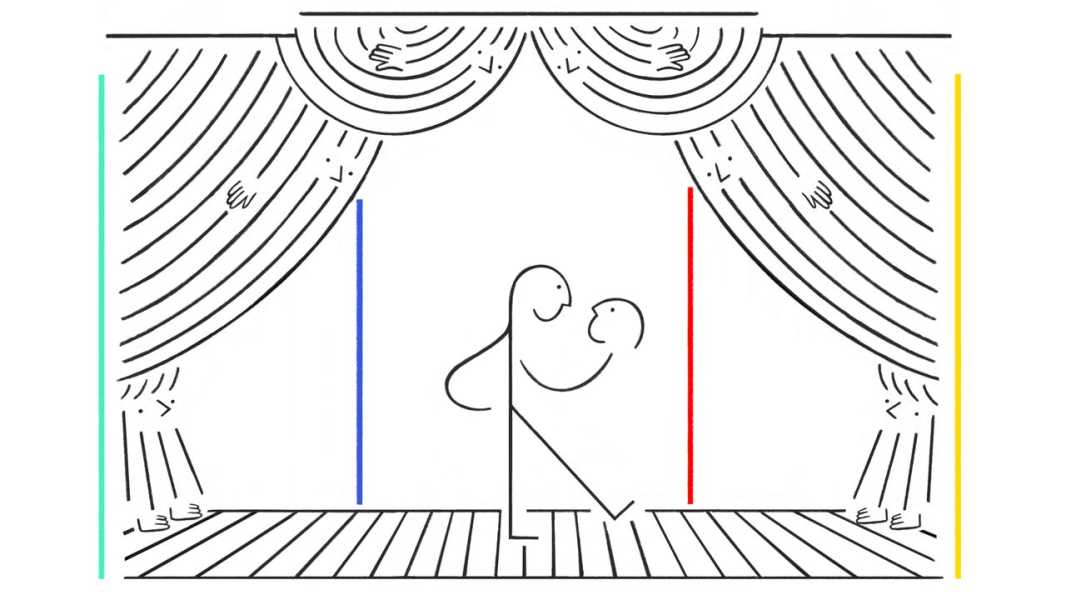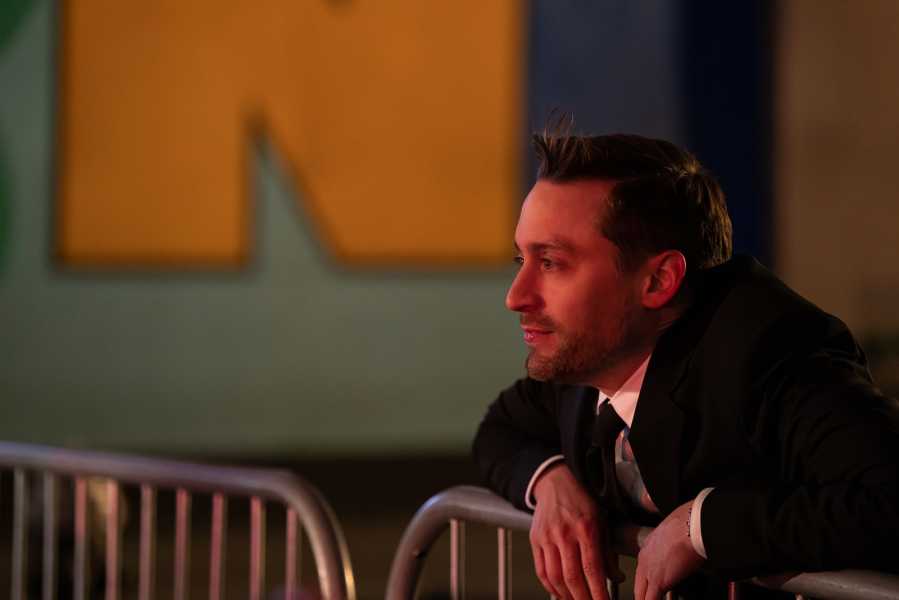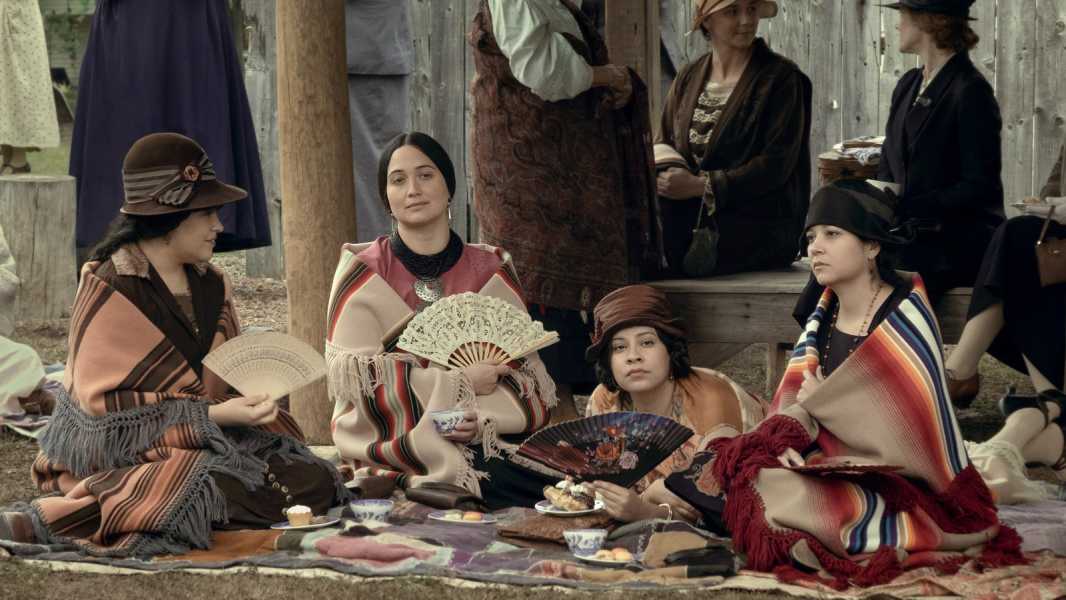
Save this storySave this storySave this storySave this story
For a master class in performance, look no further than Todd Haynes’s new film, “May December,” which arrives on Netflix on December 1st. Julianne Moore plays Gracie, who was the subject of tabloid scandal, twenty years earlier, when she hooked up with a teen-age boy, now her husband. Natalie Portman plays Elizabeth, an actress who is portraying Gracie in a movie and goes to study Gracie’s seemingly well-adjusted home life. Both Moore and Portman have been on our screens for decades, and both have an Academy Award for Best Actress. But each is at the top of her game in “May December,” a film, in some ways, about performance itself. Gracie is putting on her best face for Elizabeth, whereas in her private moments she appears rougher and stranger. Elizabeth feigns graciousness while sucking up Gracie’s psychology (a more slippery task than it appears), and Portman gives an unforgettable monologue about the blurred lines of shooting a love scene. Watching these two accomplished performers play accomplished performers, you wonder: How much are we acting all the time?
This year was rife with great performances—onscreen, onstage, and coming through our AirPods. But 2023 also put a sharp spotlight on the value of performance. In July, SAG-AFTRA went on strike, demanding higher minimum fees and better residual payments for streaming shows. Actors vanished from sets and red carpets and materialized on picket lines. One of the unexpected points of contention was A.I., which may soon allow “synthetic performers” to edge out real ones. After striking for a hundred and eighteen days, SAG-AFTRA won A.I. guardrails from the studios, but, even with measures in place for consent and compensation, technology is sure to raise existential questions about the nature of performance. Are “synthetic performers” performers at all? When we crave something “human” or “authentic,” what do we mean? And isn’t being authentically human the challenge that actors have faced all along?
The following are ten performances that broke through the pop-culture avalanche this year and showed us something ineffably human, whether through understated naturalism or extravagant spectacle. They span prestige TV, indie film, blockbusters, arena pop, and even audiobooks. The usual caveats apply: my picks are subjective, and, as much culture as I gobbled up in 2023, there was plenty I missed. But these are all performances that left a mark on the popular imagination and on my own. And none, presumably, can be bested by A.I.—yet.

Photograph by Macall Polay / Courtesy HBO
Kieran Culkin in “Succession”
The fourth and final season of “Succession” pushes the Roy children to new territory, notably the loss of their patriarch, Logan, and the final moves in the succession game at Waystar Royco. Every member of the show’s sterling ensemble has a chance to shine, but it is Culkin’s Roman, the clown prince, who reveals the most surprising new shades. After claiming to have “pre-grieved,” Roman finally melts down at Logan’s funeral, where his eulogy ends in tears before it can even begin. During the harrowing election episode, we see the chilling stakes of Roman’s amorality, which later descends into masochism as he wanders into a crowd of protesters. Our last glimpse of him is at a bar, sipping a Martini, with a scar on his forehead and a faint smirk on his face. The boy-man hasn’t grown up, but he has wriggled loose.
Honorable mention: J. Smith-Cameron as Gerri, Roman’s crush object, sometimes ally, and sometimes adversary. A deserving fan favorite!
Emma Stone in “The Curse” and “Poor Things”
A winning ingénue in films such as “La La Land,” for which she won an Oscar, Stone has been making risky, fascinating choices that subvert her America’s-sweetheart charisma. In the Showtime series “The Curse,” she plays Whitney, an eco-friendly housing developer trying to break into HGTV stardom with her husband. Whitney is as convinced of her goodness and incandescence as she is manipulative and self-serving, and Stone slides effortlessly into the cringe-comedy milieu of her collaborators Nathan Fielder and Benny Safdie. In contrast, she’s devoid of guile in “Poor Things” (out next week), a perverse gothic fantasy from Yorgos Lanthimos, who previously directed her in “The Favourite.” Stone plays a woman who, at the hands of a mad scientist, has the brain of an infant, but, as she matures, she becomes ravenous with sexual desire and perplexed at the sad state of humanity. Stone is back in the mix of the Best Actress race, and has already shot her next collaboration with Lanthimos, “And.”
Honorable mention: As Stone’s love interest in “Poor Things,” Mark Ruffalo plays a debonair rake, in the mode of Cary Grant in “Suspicion.” His scenes of seduction are heavenly, but he’s even funnier when he’s brought low.

Photograph courtesy A24
Greta Lee in “Past Lives”
In Celine Song’s delicate début film, which came out in June, Lee plays Nora (originally Na Young), a woman who came to the U.S. from Korea as a child and now lives with her white husband in New York City. A visit from her childhood sweetheart, Hae Sung (Teo Yoo), brings up unexpected longings and accentuates the fractures of her cross-cultural identity. This has the makings of a love-triangle melodrama, but Song keeps the action to a low simmer, leaving Lee to communicate volumes through the unsaid. Her subtlety makes the film’s last moments—when the sweep of unexplored possibility finally engulfs her—all the more affecting. In TV shows such as “Russian Doll” and “The Morning Show,” Lee has proved herself an incisive comic character actress, but “Past Lives” requires something far more restrained—and she delivers.
Honorable mention: Charles Melton, in “May December,” also plays the laconic third point in a triangle, who, like Nora, is grappling with a profound displacement in his past. Melton, known for the teen soap “Riverdale,” more than holds his own against his Oscar-winning co-stars.
Ryan Gosling in “Barbie”
I know, I know. A blockbuster movie about the contradictions of modern womanhood, and we’re talking about the guy? But Gosling, as King of the Kens, steals the film whenever he appears, first as beleaguered Himbo Ken, then as pimped-out Toxic Masculinity Ken, and, finally, as brooding Emotional Breakdown Ken. His showstopping power anthem, “I’m Just Ken,” is a triumph of lunacy, biceps, and blond fragility—the Kenergy is real. When it comes to Ken, “Barbie” is as perceptive about masculinity as it is about femininity, and Gosling embraces the role with exuberant idiocy. An alumnus of “The Mickey Mouse Club,” he knew how to make Greta Gerwig’s candy-colored world come alive, alongside Margot Robbie and their fellow Barbies and Kens. He was the man for the job, and that job was beach.
Honorable mention: Another spin on the preening pretty boy: James Marsden, playing a more obnoxious version of himself, in the sui-generis Amazon Freevee show “Jury Duty.”
Taylor Swift in the Eras Tour
The performance that united America! Perhaps no other entertainer has stood so firmly atop a monoculture since Michael Jackson came out with “Thriller.” As Swift rolled into arena after arena, her mere presence boosted local economies and upended traffic patterns. Her fans, gathered by the tens of thousands, were largely girls and young women (often accompanied by mothers or sisters or girlfriends) who had grown up with her introspective pop, and in Swift’s eras they saw a mirror of their own. In October, a filmed version opened in cinemas and quickly shot past a hundred million dollars. I saw it, as its creator surely intended, at 1 P.M. on a Thursday, with four other people in the theatre. Even then, her star power was undeniable. Swift’s ability to communicate with her fans—each of whom has an individual bond with her, while experiencing her in mass crowds—is something that only a handful of performers, plus a few dictators, have achieved.
Honorable mention: Beyoncé, arguably the one contemporary pop diva who can touch Swift, headlined her own roving earthquake: the Renaissance World Tour, a filmed version of which hits theatres December 1st.
The Cast of “The Holdovers”
Alexander Payne’s film, my favorite of the year, brings together a trio of lonely souls during a snowy, sad Christmas holiday in 1970. The lead is Paul Giamatti, formerly a grumpy wine enthusiast in Payne’s “Sideways,” now Mr. Hunham, a grumpy classics instructor at a New England boarding school. Over winter break, he’s put in charge of the students who can’t go back home, including Angus (Dominic Sessa), a wry, rebellious teen whose mother has gone honeymooning with her beau. They’re joined by Mary (Da’Vine Joy Randolph), who runs the cafeteria and is mourning her son’s death in Vietnam. It’s tempting to single out Giamatti, who is at Peak Curmudgeon, but the magic of Payne’s film is in the balance of these three disaffected characters as they form an ephemeral family. Sessa, in his first film role, is note-perfect, and Randolph, whose character could have stepped into any number of archetypal pitfalls, handily avoids them all. She’s now in a prime position for the Best Supporting Actress race.
Honorable mention: Jeffrey Wright, playing a disgruntled author in Cord Jefferson’s cutting comedy, “American Fiction” (which comes out December 15th), is another lovable curmudgeon, though, like Mr. Hunham, the character would likely wince at the description.

Photograph by Melinda Sue Gordon / Courtesy Apple TV+
Lily Gladstone in “Killers of the Flower Moon”
Martin Scorsese’s epic, based on the book by David Grann, centers its story on the murderous white men who robbed the oil-enriched Osage people of their wealth and their lives in Prohibition-era Oklahoma. Those men are played by Leonardo DiCaprio and Robert De Niro, Scorsese’s favored screen avatars, but it’s Gladstone who emerges as the film’s secret weapon. As Mollie Kyle, the Native woman whom DiCaprio’s character romances, marries, sickens, and sucks dry, Gladstone doesn’t play the familiar notes of a victim. She’s by turns flirtatious, wary, bereaved, off-kilter, enigmatic, and, in spite of everything, loving. Even when Mollie is sidelined by poisoning, Gladstone’s quiet presence permeates the action. “Killers” wouldn’t have worked without her. With her, it’s top-shelf Scorsese.
Honorable mention: As a very different kind of woman of the Great Plains, Bridget Everett continues to shine in the second season of “Somebody Somewhere,” on HBO.
Fran Drescher in the SAG-AFTRA Strike
In this year of labor unrest, perhaps it’s unfair to measure SAG-AFTRA’s sheer theatricality against that of other unions. These are, after all, actors. In 1960, SAG went on strike under the leadership of Ronald Reagan. When history called this time, the woman in the hot seat was Drescher, who beat Matthew Modine in a contentious election for the guild’s presidency in 2021. When the talks with the studios broke down, in July, Drescher gave a barn-burning speech, expressing her shock at the “greed” of entertainment C.E.O.s. Later, she compared them to “land barons of a medieval time.” As negotiations resumed, this fall, she showed up to the bargaining table bearing a heart-shaped plushie. As fans of “The Nanny” know, Drescher’s idiosyncratic fashion, nasal delivery, and homey Yiddishisms make her easy to underestimate, but she brought her peculiar brand of gravitas to the role of labor leader. Her needling of the C.E.O.s may or may not have been an effective tactic, but it sure was engrossing to watch.
Honorable mention: The writers’ strike didn’t have the same star power, but it did have the comedian Adam Conover (“Adam Ruins Everything”), who sat on the W.G.A.’s negotiating committee and laid out the issues in indignant, motormouthed, informative dispatches from the picket lines.

Photograph courtesy A24
Sandra Hüller in “Anatomy of a Fall” and “The Zone of Interest”
The German actress, previously best known in the U.S. for her role in “Toni Erdmann,” burst through this year with two unsettling and unsentimental film roles. In Justine Triet’s “Anatomy of a Fall,” she plays Sandra, a celebrated German writer married to a less celebrated French writer. When her husband falls to his death at their chalet, Sandra becomes the main suspect—but the question of whether she did it, and what’s truly in her heart, is a tantalizing mystery. In Jonathan Glazer’s “The Zone of Interest,” she plays Hedwig, the discontented wife of a Nazi commandant, living (and gardening) a stone’s throw from Auschwitz. As Rebecca Mead writes in this week’s issue, Hüller “found a way to give eloquent voice to her character’s complicity.” Hüller brings a stolid ambiguity to both roles, and the results are mesmerizing.
Honorable mention: “Anatomy of a Fall” is one take on the perils of being married to a writer. Nicole Holofcener’s comedy “You Hurt My Feelings” is another, with Julia Louis-Dreyfus serving a delicious helping of comic exasperation and self-doubt.
Michelle Williams in “The Woman in Me”
The release of Britney Spears’s memoir was a pop-culture event, capping years of speculation and reportage about her well-being under a conservatorship run by her father. Once she won control of her destiny, she could speak in her own voice, and the reality, as described by Spears, was even more harrowing than imagined. Although Spears’s book was presented as her unvarnished truth, it went through layers of mediation, including the work of no fewer than three ghostwriters. Spears, as she herself explains in a raspy introduction to the audiobook, was too emotionally exhausted to record the whole thing, so the job went to Michelle Williams, the five-time Oscar nominee. A clip of Williams imitating Justin Timberlake’s blaccent in an encounter with the R. & B. artist Ginuwine (“Oh yeah, fo shiz, fo shiz!”) went viral. But that’s just the start. Williams lends Spears’s story the effervescent sadness and curdled innocence of some of her best screen roles. It’s a companion piece of sorts to her Marilyn Monroe, in “My Week with Marilyn”—another blond sex symbol who discovered that fame is a prison.
Honorable mention: Barbra Streisand as Barbra Streisand, in the audiobook of “My Name Is Barbra”—all forty-eight hours of it. Like she would let someone else play her? ♦
Sourse: newyorker.com